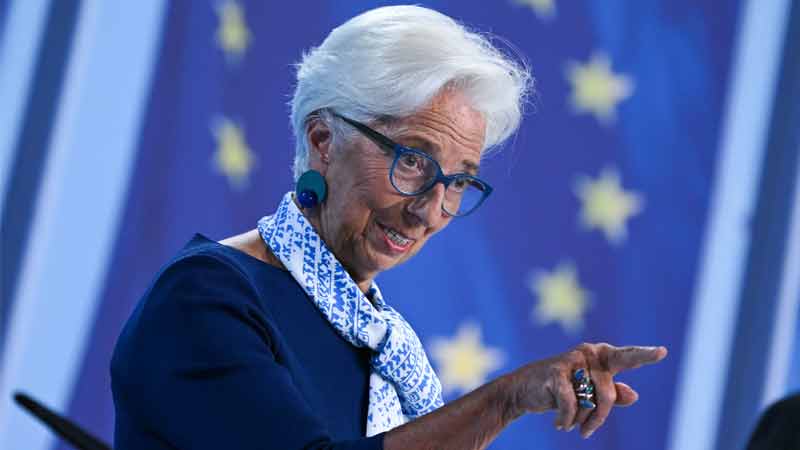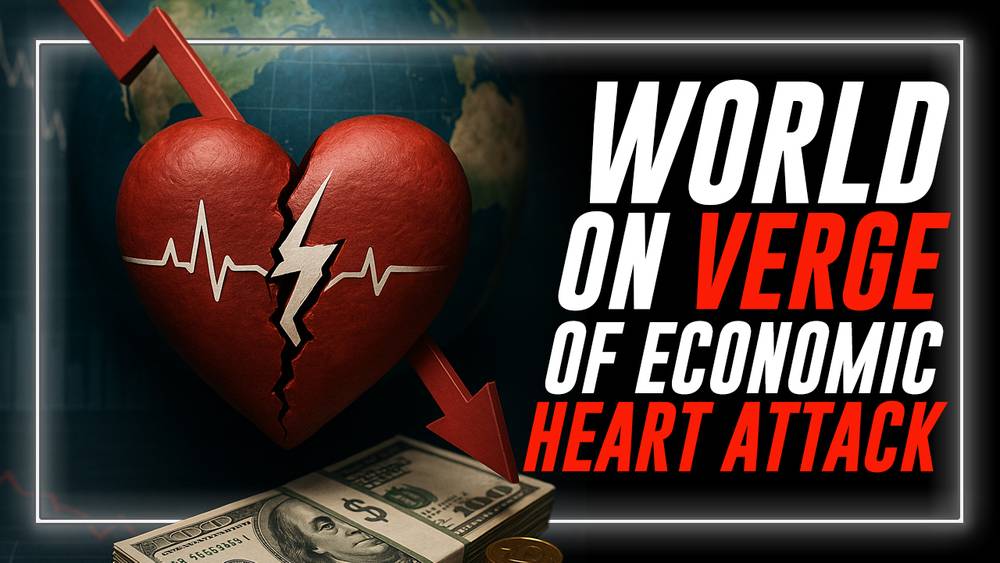 Image Credit: picture alliance / Contributor / Getty
Image Credit: picture alliance / Contributor / Getty In a recent speech in Portugal, Christine Lagarde—the president of the European Central Bank (ECB)—warned against the emergence of stablecoins, stating that they could lead to the creation of “new private currencies.” These stablecoins, which are tokens backed by fiat currencies, pose a significant risk to both the sovereignty of nations and the “common good” of currency. She therefore calls for them to be regulated at a global level.
Throughout her statement, it becomes clear that the main risk of these digital assets is their popularity among populations who see them as a relatively simple way to gain exposure to the “least worst” fiat currencies, with the US dollar at the top of the list. According to Ms. Lagarde, this success in the crypto markets undermines the effectiveness of central banks’ monetary policies by reducing the amount of money available in traditional commercial banks:
I think that we are falling prey to some confusion between money, means of payment, and payment infrastructure, and that is accelerated or emphasized as a result of the technology that is being used, and some technologies in particular I regard money as a public good, and ourselves as the public servants in charge of securing and protecting that public good.
My fear is that that blurring of the lines I mentioned earlier is likely to lead to a privatization of money. I don’t think that this is the purpose for which we’ve been appointed to do the job that we have, nor is it good for this public good that is money.
Another interesting point in Christine Lagarde’s statement is that—like Andrew Bailey (the Governor of the Bank of England)—she asserts that stablecoins “pretend” to be currencies that they are not. According to them, stablecoins cannot be currencies because they are not issued by public authorities, but by companies—in other words, by the market itself.
The problem lies in this conception of currency as a “public good”; the management, guarantee, and protection of which is the responsibility of central bank officials.
The “Public Good”
The notion of a “public good” is often associated with that of the general interest. Contrary to what central bankers seem to advocate, the general interest does not lie in centralized management and state monopoly of money. In fact, any currency controlled at the discretion of a central authority that is accountable to no one poses a threat to the general interest.
First, let us define what a “public good” means. According to Frédéric Bastiat—a prominent figure of classical liberalism—the public good encompasses everything that precedes and transcends all human legislation: freedom, property, and “personality”—meaning the dignity, life, and unique abilities of each individual. It is everything that positive law (created by the state) is supposed to protect and not continually attack, as it does. For classical liberals and Austrian economists alike, historically, the general interest has been seen to lie in all the spontaneous institutions that individuals have set up over generations. Therefore, any desire on the part of the legislator to deconstruct and reconstruct these institutions in the name of a “new collective general interest” constitutes an attack on the true general interest that has emerged from human action. This is, of course, the case with currency—one of the first institutions to be manipulated—because a monopoly on currency is the most powerful monopoly a group of individuals can exert over the masses. As Hayek put it,
In a free society the general good consists principally in the facilitation of the pursuit of unknown individual purposes….
The most important of the public goods for which government is required is thus not the direct satisfaction of any particular needs, but the securing of conditions in which the individuals and smaller groups will have favourable opportunities of mutually providing for their respective needs.
History shows that the central banking system has continually encroached on the public interest—namely, property, individual freedom, and individuality—by centralizing, devaluing, and politicizing currency. The result of these policies today is that currency is unable to fulfill its role as a reflection of the relative scarcity of goods, a medium of exchange, and a store of value. In short, today’s fiat currency—stemming from the state’s monopoly—no longer possesses the key properties of currency.
But what if the role of central banks was precisely to destroy the “public good” that currency is supposed to represent, using it as a tool of legal plunder via monetary inflation, causing economic instability by manipulating market interest rates, and using it as a weapon against individual freedoms by continuously growing government control over individuals’ lives? In this context, the promise of a European central bank digital currency (CBDC) can be seen as the culmination of this coordinated attack on the true public good.
Private Currencies and the Fear of Free Currency Competition
Again, Hayek wrote in The Denationalization of Money,
If we are to preserve a functioning market economy (and with it individual freedom), nothing can be more urgent than that we dissolve the unholy marriage between monetary and fiscal policy, long clandestine but formally consecrated with the victory of “Keynesian” economics.
Contrary to what Christine Lagarde seems to be saying, a monetary system of “private currencies” would, on the contrary, be the best way to promote and defend the notion of the “public good” and the general interest. Why? Simply because by giving individuals the explicit choice of their currency, they would naturally choose the best form of currency the market can offer them: a rare currency, reflecting the scarcity of the world, neutral, untaxable, and certain. A currency in which we can store our energy and time in order to defer and spread its use as much as possible. Ideally, this also implies a currency outside the corruptible and fallible hands of men.
This is what Austrian economists, such as Hayek in his book The Denationalization of Money, advocate. According to him, the issuance of private currencies and free competition between currencies would lead to a better quality currency, as it would be subject to the spontaneous mechanisms of adoption. This mechanism theorizes the natural convergence of individual preferences towards a single medium of exchange. In this logic, individuals who are free to choose their currency will naturally favor the one that best retains its value, is the most reliable for economic calculation, and is the least manipulable and falsifiable by humans.
In this context of a level playing field—where the sum of individual interests would de facto become the general interest—the euro, like any other fiat currency, has no chance.


